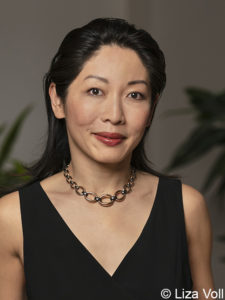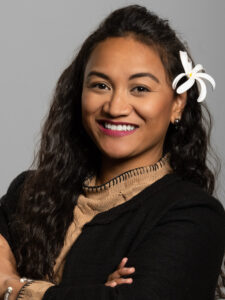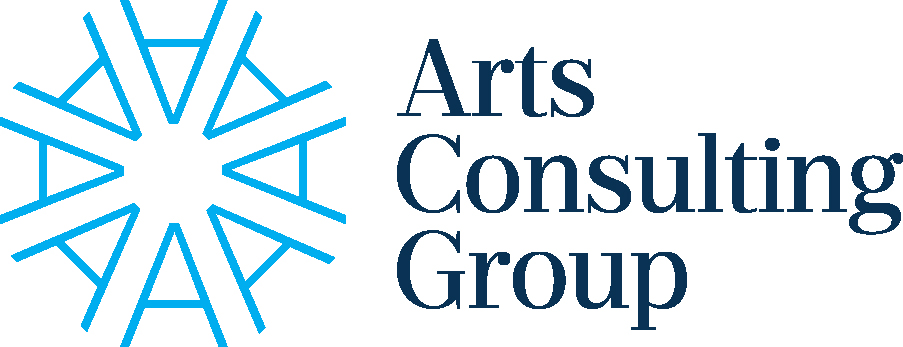Three Steps to Successful
Career Planning in the Arts and Culture Sector
Jane Hsu, Senior Advisor
Trinity Villanueva, Assistant Vice President
Mapping out a career strategy in the arts and culture sector can be overwhelming for the emerging professional, as possibilities can be broad and opportunities to connect with a prospective employer may be difficult to come by. Emerging professionals have seen job postings and are excited about how their education, experience, and qualifications might align with the roles, responsibilities, and qualifications. They may have a whole list of organizations they dream to work for, but there’s that big question — how to make the connection and secure that first interview. Oftentimes, this is the point where many emerging professionals approach executive search firms, career coaches, and their mentors. There are amazing opportunities at wonderful organizations, but a strategic approach is of the essence.
Emerging professionals want to know how to write the most appropriate cover letter and resume that authentically reflect their experience and interest to get the attention of the organization and land that job. Certainly, a well-articulated set of application materials is essential, but it is also helpful to remember there is only one appointment made for each open position. Just sending in application materials may lead to a lack of understanding about the process, how a candidate should position themselves to be more informed about the role, and their strategic approach to the application. In this edition of Arts Insights, let’s look at the challenges and opportunities of being an emerging professional in the arts and culture sector.
Step One: Maximize Early-Career Networks
Treat relationships as currency. Being a recent graduate or early-career professional may seem like a drawback when applying for roles, but the benefit of having a vast, up-to-date network of other emerging professionals and mentors in the same field is immensely helpful.
- Stay consistently engaged with professional networks. Engage not only when help is needed to share ideas. Maintaining connections and building genuine relationships will extend well into any career.
- Join an alumni group or online affinity group. Alongside recent graduates, alumni networks have mentors who could help emerging professionals make those professional connections. Joining online and attending in person affinity groups could help expand and broaden networks. If curious about working in a different city, both groups can be helpful with the understanding of the local culture and economics of a new location.
- Learn from a mentor. Learn from the wisdom of peers who may be a few steps or even many years ahead in their careers. Locating peers or mentors can be as simple as a past college professor or an online network like LinkedIn can connect you to someone who is interested in giving back to the community. Having mentors opens doors, and if you are open to listening intently, those mentors can distribute advice saving emerging professionals from missteps.
- Apply for an internship. Internships attract emerging professionals from various backgrounds with a deep interest in the same field. These are opportunities to learn about the operations of an organization and how various roles and departments interact with each other. Many arts organizations depend a lot on intern support where emerging professions who step in and contribute time will be greatly appreciated. Be sure to keep those connections from the organization—even after the internship—as advisors and references for future job searches.
- Participate with appreciative inquiry. While in an internship or early career job, do not pass up on the opportunity to participate in as many staff meetings as possible, as it’s a chance to learn about the organization. Ask questions and get curious around policies, protocols, and procedures. Leadership in organizations exist at any level where there are new and fresh perspectives.
- Volunteer in a related governance role. More boards are becoming flexible and have taskforces or committees where they are looking for younger voices and emerging professionals to be involved. If an opportunity arises to participate, and you have the interest, background, and capacity to do so, inquire about how you can. It is an opportunity to both see the governing structure of an organization and where you can connect with those in decision making roles.
- Take advantage of virtual relationships. Through online platforms, there is capability of having dialog and knowledge exchange. For example, maximize the strength of having ongoing conversations with potential mentors or someone from your alumni group you connected with a few weeks ago. The power of exchanging knowledge in an emerging professional’s future is often surprising.
Step Two: Harness the Power of Public Sources
When there’s an appreciation and understanding in the organization to which the emerging professional applies, it shows potential employers that the applicant is invested in their mission and the role. Arts and culture organizations are public entities and offer a wealth of information for interested job candidates. This access helps candidates learn about an organization and gives them the context needed to articulate an interest in working with them.
- Do your research. Regarding public documents, all non-profits as tax-exempt organizations are required to file annual tax returns that report information about finances, leadership, and activities. These documents are sometimes available on the organization’s website but otherwise on Guidestar.org for Internal Revenue Service (IRS) documents in the USA and on the Canada Revenue Agency (CRA) websites. The organization’s website can also hold other valuable documents, such as a strategic plan, annual report, and board listing. Interested in the culture of the organization? Understand its mission, vision, values, and who is on the staff, as well as equity, diversity, and inclusion statements. Look further by seeing funds of the organization, as well as organizational and facility histories, current programs, educational activities, and future plans.
- Visit an organization virtually or in person. Even one visit can offer a wealth of information by interacting with their space, staff, and other visitors. Other points of engagement include attending programs, buying something from the store, or joining as a member. If subscribed to the email list, take note of what kind of organizational information is received. What is it like to volunteer for an event or program? These are helpful experiences that provide clear reasons on why the emerging professional would be interested in the organization and the best candidate to help them continue their good work and grow.
- Attend conferences and/or panels. Once the emerging professional has a sense of with whom they might want to connect, conferences and panels are a great way to network with experienced professionals and leaders embedded in an industry where they’d like to work. Virtual conferences provide a great opportunity to attend more professional networking events than before—at a significantly lower price point—and easily engage with panelists and other attendees through chat, email, or social media.
- Create a topic-themed virtual platform. Gather public opinion by reading new articles from trusted and diversified sources. If you have a more entrepreneurial spirit, you can also gain collective or individual perspectives through social media platforms such as Facebook, Clubhouse, or Slack where individuals host live or impromptu sessions. Some influencers use TikTok or Instagram to gain varied perspectives on important and trending topics such as industry and organizational salary transparency.
Step Three: Leverage Key Relationships and Ask Questions
An emerging professional is interviewing for a job as much as the organization is interviewing them for the role. Before falling in love with a single job opportunity, be both mentally and emotionally prepared to ask the right mentors and peers about the organization, ask for referrals from those networks, and focus organizational questions to assess if this is the best next step in your career.
- Be intentional. It is easy to be reactive when applying for jobs, but it’s helpful to shape motivations by first understanding what you’re seeking in a job. This is not a numbers game, contrary to popular opinion. Recruiters regularly see people who apply for multiple jobs, but do their qualifications match all of them? Usually, they do not. When a person is intentional about for which jobs they apply, they are more likely to have an outstanding cover letter and resume that focus more specifically around the needs of the organization that are more in alignment with their own interests.
- Provide the right references. You’ve now developed networks and relationships that should positively speak on your behalf. What will they say? How will they be perceived by the person calling them to collect the reference information? Is the reference in a well-respected leadership position elsewhere? Considering these elements can be helpful in leveraging those relationships.
- Determine and settle on a sufficient and equitable salary. The IRS 990 and CRA T3010 documents list the salaries for the top paid staff in the organization, which may provide insights into those positions that are at lower salary levels. Salary ranges are more regularly posted in job listings, but professional networks can also become helpful to gain deeper knowledge. Emerging professionals should consider a reasonable and equitable salary range that they will be comfortable with before receiving an offer and accepting the role.
- EDIA in action. Many organizations have equity, diversity, inclusion, and access statements and policies. How do they align with their mission and values, as well as your own? Which commitments have come into action? Does the current board and staff reflect that commitment to diversity?
- Understand the onboarding process in preparing to begin the role. Beyond getting the job, establish what would be the plan upon arrival to be successful. How supportive is the organization in professional development and internal advancement? Are there opportunities for growth given the current organizational structure? What can be assessed from the tenure and growth of the current staff?
Conclusion
Building networks, researching organizations, leveraging key relationships, and understanding what would help an emerging professional feel supported and successful in a work environment is crucial. These elements are effective in the short-term but also the core of a long game strategy that not only creates a foundation but ought to be carried forward throughout their careers.

Jane Hsu, Senior Advisor
Bringing 20 years of experience in museum and nonprofit arts organization leadership, Jane V. Hsu is committed to public and cultural engagement and driven by innovation and deep levels of active participation. Her areas of expertise include project management, strategic community partnerships, integrated artist engagement, employee mentoring and evaluation, and equity, diversity, and inclusion education. Prior to joining ACG, she served as the Head of Engagement at the Rubin Museum of Art, where she managed creative and communication teams to produce compelling and unforgettable contemporary art experiences accessible for all ages and diverse audiences. She also reinvented museum-wide, high-impact engagement strategies by integrating contemporary art environments with an Asian art museum. As the Manager of Interpretation at the New Museum of Contemporary Art, she was a key champion for community outreach activities when the museum launched its groundbreaking building in the historical Lower East Side neighborhood. Additionally, she established accessibility and inclusion practices with programming that reinvented museum spaces for greater engagement with diverse and multigenerational audiences. An expert in contemporary art and documentary film practice, she is a curator of Chinese documentary films focused on issues of gender, sexuality, and domestic violence. She serves as adjunct faculty at New York University, Columbia University, The City University of New York, and Metropolitan College of New York, teaching courses in arts administration, art history, and film theory. Ms. Hsu holds a bachelor of fine arts in design and video from The Cooper Union School of Art in New York, a master of business administration in media management from Metropolitan College of New York, and a master of arts in film and East Asian studies from Columbia University School of the Arts.
 Trinity Villanueva, Assistant Vice President
Trinity Villanueva, Assistant Vice President
Trinity Villanueva (she/her/hers) is a performing artist, visual artist, and educator, who is an advocate for liberation and justice through creative practices. She brings a lifetime of experience at the intersections of cultural inclusion and belonging. Prior to joining ACG,Villanueva led the nonprofit Public Art Reston as Executive Director, shining light on community agency and equitable public art processes. The work involved strategic and public art master planning with stakeholders from government agencies, developers, foundations, and residents. Villanueva is a cofounder of mixt collective, a brave space for mixed-racial identifying artists, including transracial adoptees, in providing creative collaborations to dialog in navigating paucal communities. She has also worked in marketing, education, museums, performing arts, and other areas of the nonprofit and government sectors. Villanueva pivoted to education and founded the Arts Integration and Culture Department at the Carlos Rosario International Public Charter School, empowering low-income immigrants from over 128 countries, and being a leading expert for Emerging Multilingual Learners (or ELLs) in visual and performing arts education. She paved accessible opportunities and cultivated partnerships with Washington Performing Arts Society, GALA Hispanic Theatre, and various Smithsonian institutions. Villanueva serves on the boards of National Art Education Association, Indiana University Singing Hoosiers Alumni Council, and as an advisor for the Anti-Racist Art Teachers. She is an active artist elevating her indigenous roots across disciplines and performs for the Hawai’ian Entertainment Company in the DC-Baltimore-area as a Polynesian dancer, fire spinner, ukulelist, and vocalist. Villanueva holds a bachelor of science degree in piano performance with an outside field in art history from Indiana University Bloomington Jacobs School of Music. Villanueva is fluent in Spanish with a working knowledge of the Hawai'ian language.
Contact ACG for more information on how we can help your organization
find top executive, artistic, and senior management professionals.
(888) 234.4236
info@ArtsConsulting.com
ArtsConsulting.com
Click here for the downloadable PDF.
